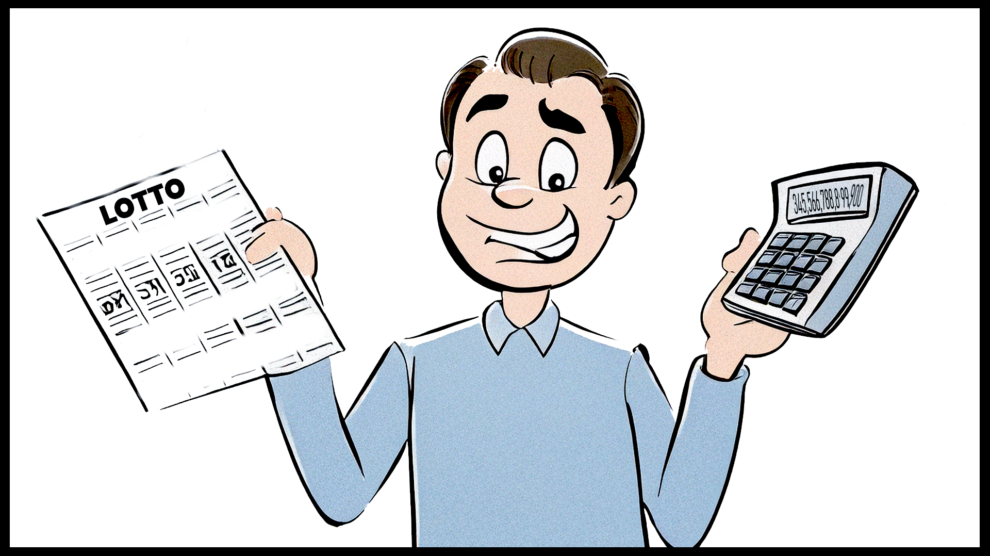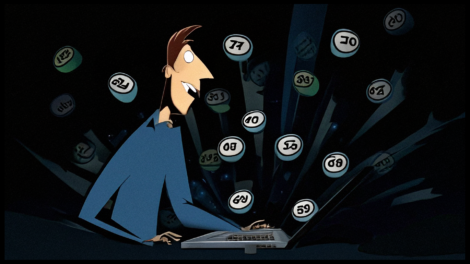Imagine buying a lottery ticket and dreaming of winning millions. But what are the actual chances of that happening? This comprehensive article explores the likelihood of winning the lottery, compares it to other rare events, and uncovers why people keep playing despite the overwhelmingly slim odds. We’ll also break down the intricate math behind these probabilities and examine how winning can transform lives—for better or worse. By the end, you’ll have a clear understanding of just how unlikely a jackpot win is and what drives the lottery’s enduring appeal across generations of hopeful players.
Understanding Lottery Odds
Lottery odds represent your precise chances of hitting a prize, typically the jackpot, in any specific game. These odds vary significantly based on the lottery’s unique structure and rules. For instance, Powerball presents a staggering 1 in 292,201,338 chance of winning its jackpot, while Mega Millions offers even steeper odds at 1 in 302,575,350. These mind-boggling figures stem from the astronomical number of possible number combinations that players must match perfectly to claim the grand prize. The likelihood of winning the lottery at these odds is truly remarkable, making each winner’s story a testament to beating nearly impossible chances.
Smaller prizes, however, come with considerably better odds. Matching just a few numbers might win you a modest payout, though these amounts pale in comparison to the jackpot’s life-altering sum. Understanding these odds helps players develop a realistic perspective on their chances of winning. Additionally, knowing the likelihood of winning lottery prizes at different tiers can inform better decision-making about ticket purchases. Here’s a detailed look at some popular lotteries worldwide.
These staggering numbers clearly illustrate why jackpot winners are so exceptionally rare—and why media outlets enthusiastically celebrate these statistical anomalies when they manage to beat the overwhelming odds.
Comparing Lottery Odds to Other Events
To truly grasp the likelihood of winning the lottery, it’s essential to put these probabilities into perspective. Your chances of being struck by lightning in any given year are approximately 1 in 1,222,000—still a remarkably unlikely event, but far more probable than winning the Powerball jackpot. Consider this: achieving stardom in Hollywood carries odds of roughly 1 in 1,505,000, which significantly exceeds the probability of claiming a lottery jackpot. Even more surprisingly, the odds of being dealt a royal flush in poker are about 1 in 649,740—making it nearly 450 times more likely than winning Powerball.
|
Powerball
|
1 in 292,201,338
|
|
Mega Millions
|
1 in 302,575,350
|
|
EuroMillions
|
1 in 139,838,160
|
These eye-opening comparisons highlight an undeniable truth: winning the lottery ranks among the most improbable events imaginable in our daily lives. Nevertheless, millions of hopeful players purchase tickets each week, persistently chasing that elusive dream despite probabilities that seem to defy conventional logic and rational thinking.
The Mathematics Behind Lottery Odds
Lottery odds fundamentally rely on combinations—a sophisticated mathematical approach to counting possible outcomes. Consider a standard 6/49 lottery, where players must select 6 distinct numbers from a pool of 49. The total possible combinations, mathematically expressed as “49 choose 6,” equal exactly 13,983,816. This means your odds of winning are 1 in 13,983,816. While the concept might seem straightforward, the implications are profound and sobering. These mathematical principles explain why the likelihood of winning lottery jackpots remains consistently low across different game formats and structures.
For lotteries like Powerball, the addition of an extra ball significantly increases the mathematical complexity of winning. Players must correctly select 5 numbers from a pool of 69 numbers, along with 1 Powerball number from a separate pool of 26 numbers. This dual-selection system exponentially increases the total possible combinations to a staggering 292,201,338. These intricate mathematical calculations clearly demonstrate why jackpots frequently grow to astronomical amounts—very few players ever manage to select the precise winning combination. Understanding these detailed probability calculations reveals the monumentally challenging odds that players face with each ticket purchase.
Why People Play Despite the Odds
Despite the minuscule likelihood of winning the lottery, millions continue to participate regularly. The motivation extends far beyond mere financial gain. A lottery ticket represents more than just a piece of paper—it provides entertainment value, delivers a momentary rush of excitement, and most importantly, offers a glimmer of hope. When considering the modest investment of just a dollar or two, many players find the cost negligible compared to the extraordinary possibility, however remote, of winning millions.
The psychological aspects play a crucial role in lottery participation. Human beings naturally gravitate toward optimistic possibilities, and the lottery perfectly satisfies this inherent need by offering a small but enticing chance at complete life transformation. While critics often characterize it as a “tax on the poor,” noting its particular appeal among lower-income demographics, regular players frequently find that the emotional uplift and entertainment value outweigh the statistically unfavorable odds of winning.
The Impact of Winning
When someone beats the overwhelming odds and wins the lottery, their life undergoes a dramatic transformation, though not always in predictable ways. Some fortunate winners achieve genuine financial independence, enabling them to pursue long-held dreams such as world travel or establishing charitable foundations. However, research consistently shows that others encounter unexpected challenges, including heightened stress levels from managing sudden wealth, dealing with intense public attention, or navigating complicated changes in personal relationships. While one winner might successfully build a stable and prosperous future, another might unfortunately deplete their entire windfall through poor decisions.
These contrasting outcomes become particularly evident through real-world examples. Certain jackpot recipients demonstrate remarkable success, managing their newfound wealth with wisdom and foresight. In contrast, others discover that their substantial windfall introduces more complexity and turmoil than joy into their lives, reinforcing the notion that sudden wealth tends to amplify existing personality traits and behaviors. While the likelihood of winning lottery prizes remains extraordinarily low, the potential consequences of such a win deserve careful consideration.
Conclusion
The likelihood of winning the lottery presents incredibly challenging odds—often exceeding 1 in 100 million for major prizes. When compared to other rare occurrences like lightning strikes or achieving celebrity status, lottery wins stand out as particularly improbable statistical events. Nevertheless, millions continue playing, driven by hope and the irresistible appeal of life-changing jackpots. While mathematical analysis confirms the extreme difficulty of winning, psychological factors help explain why people persist in playing. For those rare individuals who do win, outcomes vary dramatically based on personal circumstances and choices. When purchasing tickets, it’s advisable to enjoy the anticipation and excitement—while maintaining awareness that the true value often lies in the entertainment experience rather than…
If you are looking for more noteworthy content of Lottery tips and stories, be sure to read the rest of my posts Goated Lottery Secrets









